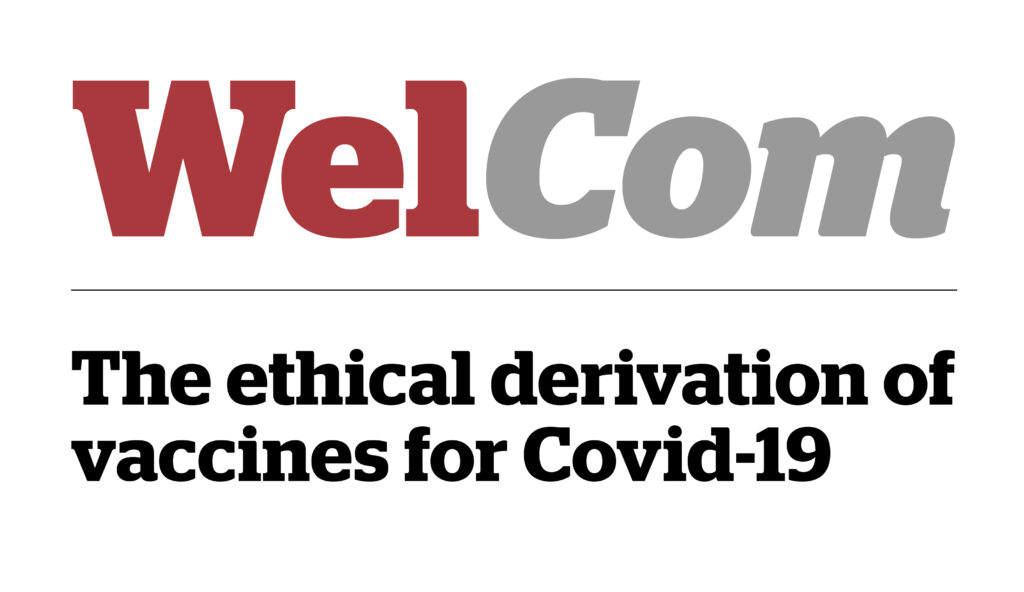WelCom June 2020:
Dr John Kleinsman, Director of the New Zealand, Catholic Bioethics Centre
It is generally accepted that a Covid-19 vaccine provides the best possibility of an ‘exit strategy’ from the pandemic. Many companies around the world are currently working to produce such a vaccine.
Human vaccines are typically developed using cell cultures developed from a single human cell. One of the sources of the cells used for human cell lines is tissue from aborted fetuses. This clearly presents a significant moral dilemma for Catholics and others. Catholic teaching upholds the principle of the inviolability of human life, which precludes the destruction or use of human embryos or aborted fetuses for medical research: we should never use another human life as a means to an end, no matter how good the intention.
There are various companies using only ethical cell lines for the development of a corona virus vaccine and there would be no moral issues related to abortion in such cases.
However, there are other companies using cell lines derived from aborted fetuses. This means there is a real possibility that a successful corona virus vaccine, and there may only be one, could be directly linked to human abortion, whether recent or in the distant past.
This is not a new dilemma. The rubella vaccine, for example, derives from the WI-38 cell line that uses lung tissue from a female fetus aborted in the 1960s. The specific dilemma for those who oppose abortions of any kind is the extent to which, in using such a vaccine, we are condoning abortion and potentially encouraging further abortions.
The Pontifical Academy has previously spoken on this, stating in 2005 that when the cell lines being used are ‘very distant’ from the original abortions, then there is no morally relevant cooperation between those using the vaccine and the original abortion. Assuming there are no other effective ethical alternatives, the Academy concludes it is not just morally acceptable to use such a vaccine but, where the vaccination coverage is necessary for the safety of others, there is a ‘moral obligation’ to use it. Critical to the Academy’s conclusion is the fact that the ongoing production of vaccines like Rubella do not require new abortions.
This rationale would apply equally to a corona virus vaccine that was produced from an historical cell line linked to an abortion.
However, there are still some companies using cell lines derived from the cells of recent human abortions. In the event there were no other ethical effective alternatives, we could realistically find ourselves having to choose between using a morally unacceptable vaccine produced from such a cell line or not being immunised.
This would pose a genuine dilemma. How would this be resolved? The use of such a vaccine would ultimately be a matter of individual conscience.
On the one hand, by deciding not to take such a vaccine, an individual would be making a strong and prophetic stand in favour of the value of human life. At the same time, they would be rightly rejecting any sort of utilitarian calculus by which it might be reckoned that the death of a ‘few’ innocent human lives is outweighed by the potentially millions of lives that would be saved.
On the other hand, in the messiness of life we do sometimes have to choose between two ‘bad’ outcomes. In weighing up whether we might refuse a corona virus vaccination it becomes evident that the impact of such a decision has a significant ripple effect – the impact of not being vaccinated means we risk passing on a potentially fatal virus to the people we live, work and socialise with. In other words, the burden and risks of not being vaccinated do not just fall on the decision maker; we would also be imposing the potentially fatal consequences on others without their consent.
That is why some Catholic ethicists have concluded there is also ‘no absolute duty’ to boycott any Covid-19 vaccine produced with the help of cells recently derived from aborted fetuses when no other alternatives exist. I personally agree with that conclusion, while hoping that such a scenario never presents itself.
This article is a synthesis of an article that appeared in NZ Catholic, 17 May 2020, and is reproduced with permission of The Nathaniel Centre.
